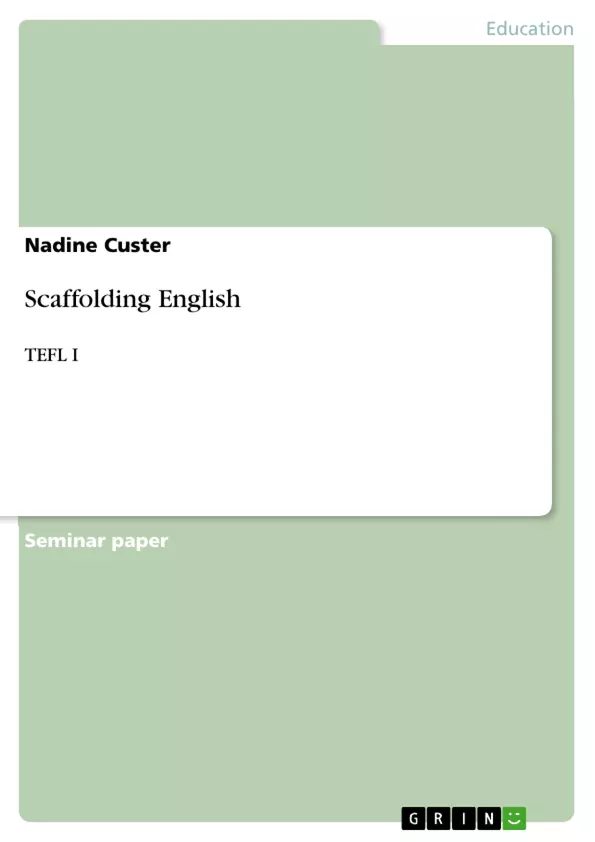I think learning languages is really important nowadays, because it is necessary almost everywhere. We need to be able to speak another language, especially English, in almost every job, we are a multicultural earth, we communicate over the internet to people all over the world and English is the language most spoken. Even if you work at Burger King, it can happen that customers come in who are not able to speak German and you will have to communicate with them somehow.
When I think back to what I have learned about a good teacher and a successful language learner, I remember that the teacher plays an important role because he manages the whole classroom including the atmosphere and the motivation. If he is not motivated, the class won´t be either because they will be bored. A good teacher should know about different learner types and should be able to handle them with the right strategies. Many problems can show up like different cultures and backgrounds of the learners. So the teacher and the learners have to find a way to collaborate with each other. Another important fact is that the teacher has to teach the learners all four skills of language learning instead of focusing at one. Writing, listening, speaking and reading skills should be taught on the same level. Furthermore, the materials a teachers uses should be interesting for the learners and motivate them. So if the students are not motivated or do not respect their teacher, he or she has to find a way how to change it. I see the major problems individuals face when learning languages in the different ways pupils learn. No class is homogenous and every single student in it has his/her own way of learning and dealing with another language. Some are more motivated or even already in touch with another language and some seem to despise to learn another language. Some are stronger and some are weaker in learning. And the teacher has to deal with all of them at the same time. So you have to manage to help the weaker ones without to letting the stronger pupils become demotivated.
I think languages fit in with other subjects in many different ways. We always communicate in a language. This is mostly German. So I do not see a real difference in the communication in German or English in a subject. The only one is probably the fact that the students or pupils have to learn the vocabulary for being able to speak in other subjects in English also. So you could teach every subject in anothe
Inhaltsverzeichnis (Table of Contents)
- Questionnaire (reflective statement of personal teaching philosophy I)
- Knowledge of subject matter essay
- Critical learning incident essay
- Personal diary/reflection log
- Homework assignment: a critical review of an article in an academic journal
- Reflection on group work/ task
- Questionnaire (reflective statement of personal teaching philosophy II)
- Sources
Zielsetzung und Themenschwerpunkte (Objectives and Key Themes)
This portfolio reflects on the author's personal teaching philosophy and experiences in the "Scaffolding English" course. It examines the concept of scaffolding in language learning and its practical application in the classroom.
- The importance of scaffolding in supporting language learning.
- The role of the teacher in creating a motivating and effective learning environment.
- The challenges of managing diverse learner needs and learning styles.
- The connection between scaffolding and Vygotsky's Zone of Proximal Development.
- The significance of clear and structured presentation materials in language learning.
Zusammenfassung der Kapitel (Chapter Summaries)
- Questionnaire (reflective statement of personal teaching philosophy I): This chapter explores the author's initial views on language learning, highlighting the importance of communicative competence, diverse learning styles, and the role of the teacher in creating a motivating and effective learning environment.
- Knowledge of subject matter essay: This chapter delves into the author's initial understanding of the concept of scaffolding and its relationship to Vygotsky's Zone of Proximal Development. The author discusses their expectations for the course and their evolving understanding of scaffolding.
- Critical learning incident essay: This chapter reflects on a specific learning experience related to the importance of clear and structured presentation materials for effective learning. The author emphasizes the need for teachers to design materials that are readable, defined, and structured to avoid student confusion and frustration.
Schlüsselwörter (Keywords)
This portfolio focuses on the key concepts of scaffolding, language learning, teacher-student interaction, learning styles, Vygotsky's Zone of Proximal Development, and effective presentation materials. The author explores the practical application of these concepts in the English as a Foreign Language (EFL) classroom.
Frequently Asked Questions
What is "Scaffolding" in language learning?
Scaffolding refers to the temporary support provided by a teacher to help a student reach a higher level of understanding or skill, which they couldn't achieve alone.
How does Scaffolding relate to Vygotsky's Zone of Proximal Development (ZPD)?
Scaffolding is the practical application of the ZPD. It provides the necessary tools and guidance within the gap between what a learner can do independently and what they can do with help.
What are the qualities of a good language teacher according to this text?
A good teacher manages the classroom atmosphere, is highly motivated, understands different learner types, and balances the needs of stronger and weaker students.
Why is it important to teach all four language skills equally?
Effective communication requires proficiency in writing, listening, speaking, and reading. Focusing only on one skill limits the learner's overall communicative competence.
What challenges do teachers face in heterogeneous classes?
Teachers must deal with diverse cultural backgrounds, different learning speeds, and varying levels of motivation among students simultaneously.
- Quote paper
- Nadine Custer (Author), 2011, Scaffolding English, Munich, GRIN Verlag, https://www.grin.com/document/263867



